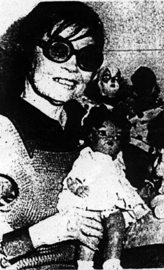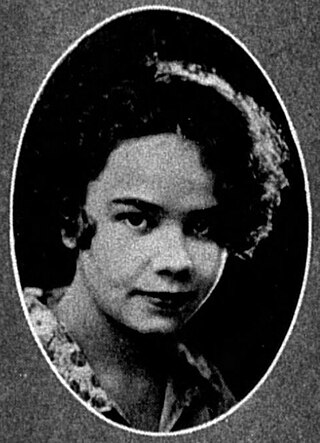Related Research Articles

George Samuel Schuyler was an American writer, journalist, and social commentator known for his outspoken political conservatism after repudiating his earlier advocacy of socialism.

Ethel Lois Payne was an American journalist, editor, and foreign correspondent. Known as the "First Lady of the Black Press," she fulfilled many roles over her career, including columnist, commentator, lecturer, and freelance writer. She combined advocacy with journalism as she reported on the Civil Rights Movement during the 1950s and 1960s. Her perspective as an African American woman informed her work, and she became known for asking questions others dared not ask.
Malvin Russell "Mal" Goode Sr. was an African-American television journalist and news correspondent.

Byron Pitts is an American journalist and author, working for ABC News as co-anchor for the network's late night news program, Nightline. Until March 2013, he served as a chief national correspondent for The CBS Evening News and contributed regularly to 60 Minutes.

Jackie Ormes was an American cartoonist. She is known as the first African-American woman cartoonist and creator of the Torchy Brown comic strip and the Patty-Jo 'n' Ginger panel.

John Herman Henry Sengstacke was an American newspaper publisher and owner of the largest chain of African-American oriented newspapers in the United States. Sengstacke was also a civil rights activist and worked for a strong black press, founding the National Newspaper Publishers Association in 1940, to unify and strengthen African-American owned papers. Sengstacke served seven terms as president of the association, which by the early 21st century had 200 members.

Wallace Houston Terry, II was an African-American journalist and oral historian, best known for his book about black soldiers in Vietnam, Bloods: An Oral History of the Vietnam War (1984), which served as inspiration for the 1995 crime thriller Dead Presidents and the Spike Lee's 2020 war drama Da 5 Bloods.
The Pittsburgh Courier was an African American weekly newspaper published in Pittsburgh from 1907 until October 22, 1966. By the 1930s, the Courier was one of the leading black newspapers in the United States.
Frank Tillman Durdin was a longtime foreign correspondent for The New York Times. During his career, Durdin reported on the Second Sino-Japanese War (1937–1945), the collapse of European colonial rule in Indo-China, and the emergence of the People's Republic of China. He was the first American journalist granted a visa to reenter China in 1971.
William Gardner Smith was an American journalist, novelist, and editor. Smith is linked to the black social protest novel tradition of the 1940s and the 1950s, a movement that became synonymous with writers such as Richard Wright, Ralph Ellison, Willard Motley, and Ann Petry. Smith's third book, South Street (1954), is considered to be one of the first black militant protest novels. His last published novel, The Stone Face (1963), in its account of the Paris massacre of 1961, "stand[s] as one of the few representations of the event available all the way up until the early 1990s".
Percival Leroy (P.L.) Prattis was an American journalist. He was the city editor of the Chicago Defender, the most influential African-American weekly newspaper in the U.S. at the beginning of World War I. Later, he spent 30 years at the Pittsburgh Courier, another influential black paper, rising up to become executive editor.
Louis R. Lautier (1897-1962) was the first African-American journalist admitted to the White House Correspondents' Association (1951) and to the National Press Club (1955).
Hazel B. Garland was a journalist, columnist and newspaper editor. She was the first African-American woman to serve as editor-in-chief of a nationally circulated newspaper chain. Born into a farming family, she was the eldest of 16 children. Although a bright and capable student, she dropped out of high school at her fathers instigation, and spent time working as a maid in order to provide financial assistance to her family.

Vincent Lushington "Roi" Ottley was an American journalist and writer. Although largely forgotten today, he was among the most famous African American correspondents in the United States during the mid-20th century.

The Baltimore Afro-American, commonly known as The Afro or Afro News, is a weekly African-American newspaper published in Baltimore, Maryland. It is the flagship newspaper of the AFRO-American chain and the longest-running African-American family-owned newspaper in the United States, established in 1892.
Trezzvant William Anderson was an American journalist, publicist, and war correspondent.
Gerald J. Voros served as the Chairman of the International Committee of the Boy Scouts of America.

Irvine Garland Penn was an American educator, journalist, and lay leader in the Methodist Episcopal Church. He was the author of The Afro-American Press and Its Editors, published in 1891, and a coauthor with Frederick Douglass, Ida B. Wells, and Ferdinand Lee Barnett of The Reason Why the Colored American Is Not in the World's Columbia Exposition in 1893. In the late 1890s, he became an officer in the Methodist Episcopal Church and played an important role advocating for the interests of African Americans in the church until his death.
The Associated Negro Press (ANP) was an American news service founded in 1919 in Chicago, Illinois by Claude Albert Barnett. The ANP had correspondents, writers, reporters in all major centers of the black population in the United States of America. It supplied news stories, opinions, columns, feature essays, book and movie reviews, critical and comprehensive coverage of events, personalities, and institutions relevant to black Americans. As the ANP grew into a global network. It supplied the vast majority of black newspapers with twice weekly packets.

Fay M. Jackson was an American journalist based in Los Angeles. Jackson founded the first Black news magazine on the West Coast, Flash, in 1928, and during the 1930s became the first Black Hollywood correspondent for the Associated Negro Press.
References
- 1 2 3 4 5 6 7 8 Pflug, Wendy. "Frank E Bolden Papers". Archives Service Center, University of Pittsburgh Library System, University of Pittsburgh. Archived from the original on 2013-06-17. Retrieved May 29, 2017; Collection Number: CAM.FHC.2011.01, collection received - 2010
{{cite web}}: CS1 maint: postscript (link) - 1 2 3 4 5 Brennan, Carol. "Frank E. Bolden". Gale Contemporary Black Biography. Gale Group, Inc, 2006. Retrieved 15 February 2014.
- 1 2 3 4 "Frank E. Bolden, 90; Journalist Became Historian of Black Life". Los Angeles Times. September 4, 2003. Retrieved 15 February 2014.
- ↑ digital.library.pitt.edu https://web.archive.org/web/20130617100853/http://digital.library.pitt.edu/cgi-bin/f/findaid/findaid-idx?c=ascead%3Bcc%3Dascead%3Bq1%3Dprattis%3Brgn%3Dmain%3Bview%3Dtext%3Bdidno%3DUS-PPiU-ais200805. Archived from the original on 2013-06-17.
{{cite web}}: Missing or empty|title=(help)
External links
- Frank E. Bolden Papers Finding Aid, 1930-1967, AIS.2008.05, Archives Service Center, University of Pittsburgh